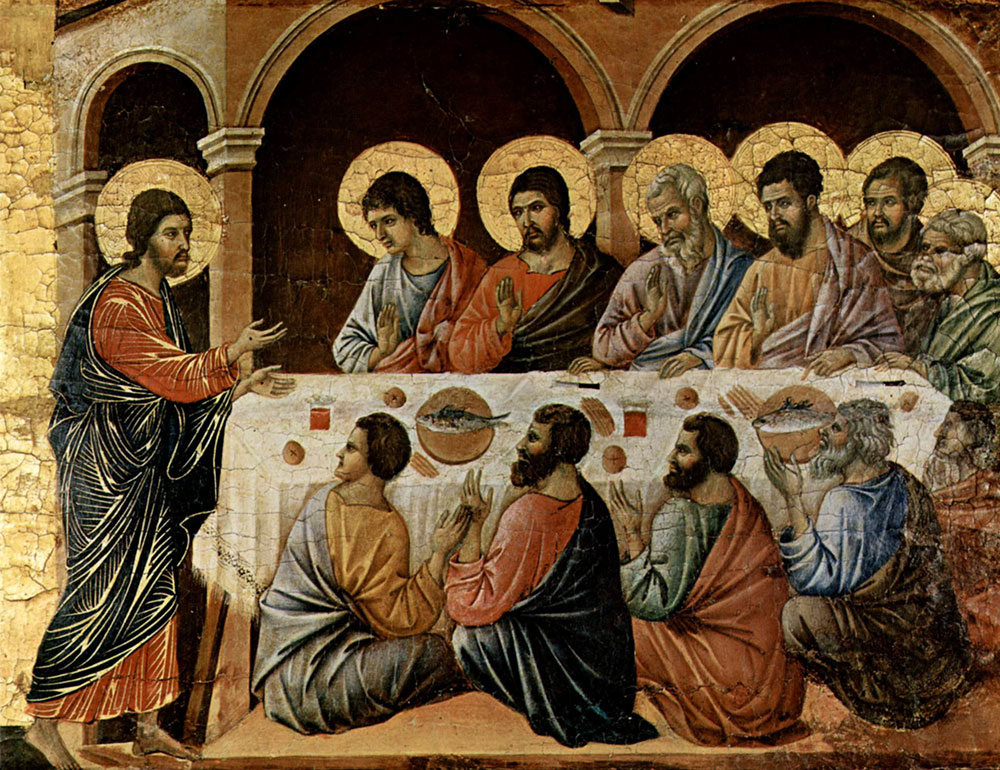Divine Mercy Sunday (2nd Sunday of Easter) Acts 5:12-16, Revelation 1:9-11a, 12-13, 17-19, & John 20:19-31.
Theme: “Touch the Wounds of Christ, Be Healed by His Mercy”
Today, as we gather on this Second Sunday of Easter—Divine Mercy Sunday—the Church invites us to delve more deeply into the mystery at the very heart of the Gospel: the infinite mercy of God. Mercy is not simply something that God does; it is who God is. It is His very nature to love us, to forgive us, to heal us, and to bring life where death once reigned. Today’s readings point us toward a bold truth: God’s mercy is real, tangible, and transformative. It is not a vague feeling of goodwill; it is the concrete action of God’s love reaching into the deepest wounds of our humanity to bring restoration and new life.
Let us examine the Scriptures to see how Divine Mercy is revealed and what lessons we can learn.
- The Power of Mercy in the Early Church (Acts 5:12-16)
The Acts of the Apostles captures a vivid message for us to ponder: “Many signs and wonders were done among the people at the hands of the apostles.” Crowds lay the sick in the streets, yearning for even Peter’s shadow to touch them. Picture the hope, desperation, and faith! What is the lesson for us here? It means Mercy is not passive; it moves outward, heals, and transforms communities.
The apostles, who experienced the mercy of the Risen Lord after their betrayals and fears, now become instruments of that same mercy. They do not hoard the mercy they received; instead, they allow it to flow through them. If we have truly encountered Divine Mercy, we cannot keep it to ourselves. Mercy must overflow into action—into forgiveness, into healing, and into service of the broken. Mercy is meant to heal not just individuals but entire communities.
- The Vision of the Risen Christ (Revelation 1:9-11a, 12-13, 17-19)
John’s vision of Jesus is breathtaking: a figure “like a Son of Man,” clothed in glory. John falls at His feet “as though dead”—overwhelmed by the holiness of Christ. Yet, Jesus’ response is pure mercy: He touches John and says, “Do not be afraid.” Mercy is stronger than fear. The dazzling holiness of Christ could have crushed John in guilt. Instead, it lifts him up. Christ does not reveal His glory to terrify us, but to reassure us.
He wants us to know: “I was dead, but now I am alive forever.” Mercy means we no longer have to be paralysed by fear—fear of punishment, fear of unworthiness, fear of death itself. How often do we approach God with fear, expecting condemnation instead of compassion? Jesus says today, “Do not be afraid.” His mercy is bigger than our sin, our past, and even death. When we are tempted to run from God because of shame or fear, Divine Mercy calls us to run to Him instead.
- Thomas and the Invitation to Touch the Wounds (John 20:19-31)
In the Gospel, the Risen Jesus first appears to His disciples in a locked room, and later meets Thomas, who expresses doubt. Rather than condemning Thomas for needing evidence, Jesus compassionately invites him, saying: “Put your finger here and see my hands. Bring your hand and put it into my side.” This illustrates that mercy reaches us in our moments of weakness. The wounds of Jesus are not removed through the Resurrection; they are glorified yet still visible, serving as symbols of love rather than signs of defeat. Thomas’s doubt does not lead to condemnation; instead, it guides him toward a deeper faith through a personal encounter with Christ’s wounds. Our own wounds—such as doubts, sins, and failures—do not hinder God’s mercy; they are the very openings through which His mercy seeks to enter. By inviting Christ into our brokenness, we allow Him to transform it into a source of healing and hope. Thomas’ final response—”My Lord and my God!”—represents the leap of faith that Divine Mercy seeks from all of us. This leap does not require perfect certainty. It involves surrendering to the overwhelming love and mercy of God, even when we do not fully understand.
Lessons From Divine Mercy:
From these Scriptures, Divine Mercy teaches us several profound truths:
- Mercy is Mission: We are called to be bearers of mercy to others, just as the apostles were. Mercy should not be a private treasure but rather a public witness.
- Mercy is the antidote to fear: When we encounter God’s mercy, we need not be afraid of our sins, our past, or even death anymore.
- Mercy Heals Wounds, Not Hides Them: Christ keeps His wounds visible because they are now signs of victory. In Him, our deepest wounds can transform into channels of grace if we invite Him into them.
- Mercy Demands Faith: We are called to believe in mercy, not just as a theological teaching but as a lived reality. Like Thomas, we are encouraged to move from doubt to adoration.
Divine Mercy and You
Dear friends, Jesus stands before you today. He shows you His wounds, speaks words of peace, and calls you by name. He says, “Do not be afraid. Trust in My mercy.” But He also sends you out:
“As the Father has sent Me, so I send you.” You are sent into a world starving for mercy—a world quick to judge, quick to condemn, and slow to forgive. Be agents of mercy. Forgive as you have been forgiven. Love as you have been loved. Heal as you have been healed. Pray the Chaplet of Divine Mercy. Reflect on the image of Jesus with rays of blood and water pouring from His heart. Say often, as He taught St. Faustina:
“Jesus, I trust in You.” And most of all, live mercy. Let mercy flow through your hands, your words, your life. Today, touch the wounds of Christ. Be healed. Be sent. Be merciful. Amen.
HAPPY DIVINE MERCY SUNDAY✨✨






